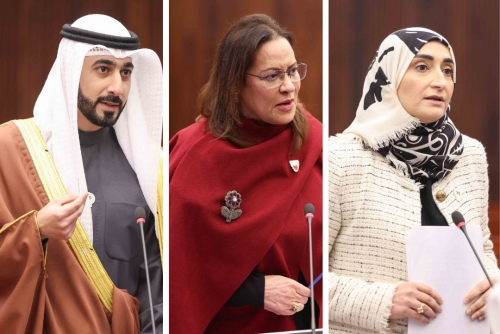Shura Council unanimously supports pharmacy expansion plan amid concerns
TDT | Manama
Email: mail@newsofbahrain.com
The Shura Council yesterday gave its unanimous support to a government-backed proposal allowing pharmacies to open an unlimited number of branches, marking a departure from long-standing restrictions.
Parliament had earlier approved the removal of Article 28 of Decree-Law No. 18 of 1997, as amended by Decree No. 98 of 2024, which limited pharmacies to five branches, with a sixth allowed under strict conditions.
“This is a much-needed step towards improving access to medicines across Bahrain,” said Council Member Dr Bassam Al Binmohammed. “It enhances the country’s purchasing power and opens the door to sourcing medicines from larger pharmacies.”
However, not all members were without concerns.
Fouad Al Hajji urged caution, warning of the possible impact on smaller Bahraini pharmacies.
“Opening the doors to large international companies with deep pockets could harm established local businesses that support families and employ Bahrainis,” he said. “We must ensure the right checks are in place.”
Abuses
Al Hajji also raised the issue of abuses in the system, citing examples of expatriates allegedly stockpiling expensive medicines from health centres and sending them abroad.
“What happens to our national institutions if larger players dominate the market?” he asked.
Abdullah Al Nuaimi expressed concern over the risks of commercial interests taking precedence over medicine quality and professional ethics.
“There’s a danger this could undermine trust and harm patients. Pharmacies should operate independently from hospitals and avoid shared ownership arrangements,” he said.
Collaboration
Al Nuaimi called for greater collaboration under the Supreme Council of Health, emphasising the humanitarian and national goals of the reform.
He also suggested the establishment of training institutes for pharmacy and nursing to meet local and global demand.
“Developing professionals, setting up factories, and building laboratories must be central to the council’s strategy,” he added. Shaikh Ahmed bin Mohammed Al Khalifa argued for a balanced approach.
“Pharmacy branches should be set up according to population density and the size of each governorate,” he said. “At the same time, drug prices must be fair and within reach for everyone.”
Registration
In a move to address availability, the National Health Regulatory Authority (NHRA) has introduced reforms to speed up medicine registration.
“In the past, it took around nine months to register a medicine in Bahrain,” explained NHRA CEO Dr Ahmed Al Ansari. “Now, medicines already approved in trusted countries can be registered here within nine days.”
Dr Al Ansari noted that 110 medicines were registered in October alone, a sharp rise compared to the previous rate of 15-20 per month.
Suppliers are also required to maintain a four-month stock to ensure steady availability.
Reforms
The broader healthcare strategy in Bahrain includes initiatives beyond pharmacy reforms.
Supreme Council of Health Secretary-General Dr Ebrahim Al Nawakhda announced that a health insurance scheme for expatriates would be launched within the next two weeks.
“The tender process for the health insurance project is under review, and this trial phase aims to establish the necessary infrastructure for a nationwide rollout for citizens,” he said.
Dr Al Nawakhda also noted that approximately 4,000 medicines are available in the private sector, compared to 2,000 provided through public healthcare.
Alternatives
“Citizens are entitled to choose alternatives for their prescribed medicines from private pharmacies,’” he added, highlighting the expanded options the new law could facilitate.
The legislation focuses on complementary products, such as vitamins and medical devices, while essential medicines remain free.
“There’s no risk to essential medicines as they’re controlled by the government,” said Dr Ahmed Al Arrayedh.
Dr Ibtisam Al Dallal welcomed the move but urged for measures to prevent monopolies and ensure pharmacies are fairly distributed across the country.
Healthcare system
“This is about advancing our healthcare system while keeping medicines accessible for everyone,” she said.
Other members stressed the broader economic benefits.
“This law creates opportunities for Bahraini workers and encourages investment,” said Dr Ali Al Haddad.
“This is about adapting to the modern needs of healthcare,” added Dr Jameela Salman, who praised the potential for Bahrain to strengthen its standing as a regional leader in high-quality healthcare services.
Related Posts

